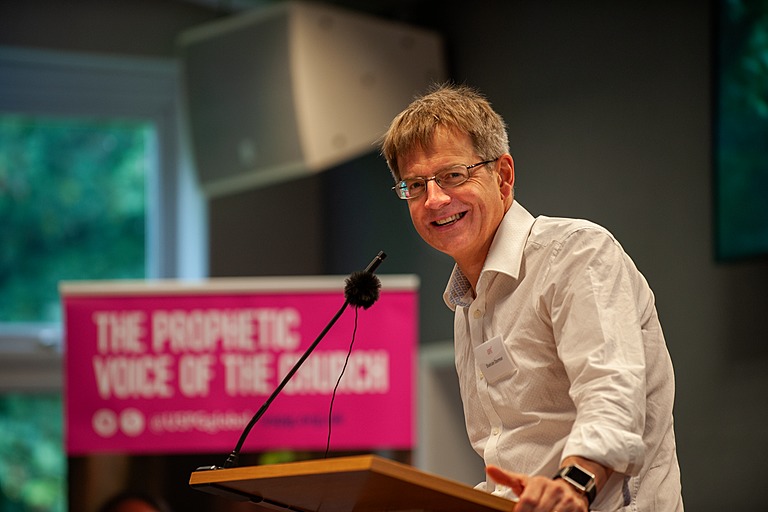Bringing light in an age of Covid

Duncan Dormor, USPG General Secretary
As we set sail into 2022, it is difficult not to be gripped by a sense of déjà vu. Having reached ‘Omicron’, are we simply heading around the calendar encountering new waves of Covid?
Since March 2020, there has been a constant urge to look to what comes after; to when-we-are-post-pandemic. That desire to return to ‘normal’ is palpable.
Perhaps the clearest example of this ‘old normal’ is the holiday ‘in the sun’, the escape from ourselves, our daily routines, these cold climes. Yet, we know that air travel is especially damaging to the climate. We also know that. as we travel in one direction above the clouds, there are others, far below, who have embarked on dangerous journeys coming the other way, motivated by a desire to find a new and permanent home.
The world is a deeply unequal place – and that extends to the distribution of vaccines. We have not ‘escaped’ the pandemic through science and technology, through the vaccine roll-out, because in truth, there is no escape until vaccines are available to all. The succession of Covid variants tell us something very important – the pandemic won’t be ‘over’ until everyone has protection from the virus. The failure to think and act globally is exactly what prevents us from moving beyond the current crisis.
‘Post-pandemic’ is not very useful language, for we are now literally in an Age of Covid. This ‘Age’ is not simply about a virus, but about the interconnected nature of the challenges facing our world: rapid environmental changes that are destroying livelihoods, scarcity of food and water, the movements of people and the rise of conflicts.
The new year brings us the season of Epiphany, when Christians reflect on Christ coming as a light to the nations, a light that that reaches beyond the dark divisions of humanity. It is a season with a radical vision for the ‘norms and notions’ that permeate society, as Epiphany speaks to the universal, of and to all nations and all peoples. In this season, we use the imagery of water and light, which in their different ways bring waves of refreshment and wisdom to our experience as human beings; that speak of a renewed relationship, of the breaking into history of a vision of hope and renewal, in which we see ourselves afresh, alongside our sisters and brothers, as made in the image of God.
Epiphany challenges inherited ideas, the old norms, a return to what has been. It speaks instead of that which might be. We may all yearn to be ‘post-pandemic’, but it is possible that we will only arrive there if we are renewed as a people, as global neighbours caring for all.
